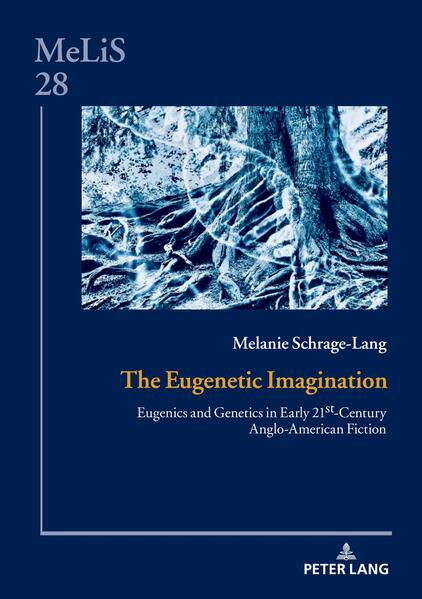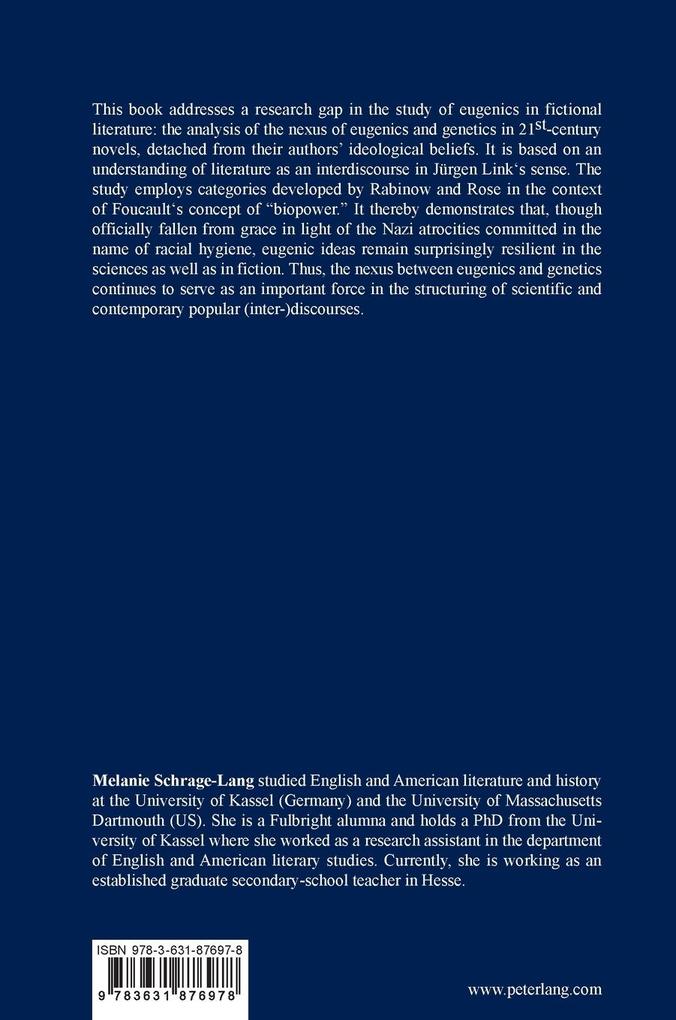
The study analyzes instances of a eugenetic imagination in early 21stcentury novels. Employing categories developed by Rabinow & Rose in the context of Foucault's 'biopower,' it reveals the continuity of eugenic ideas in contemporary fiction and it as a crucial element in the literary evaluation of modern-day genetics.
This book addresses a research gap in the study of eugenics in fictional literature: the analysis of the nexus of eugenics and genetics in 21st-century novels, detached from their authors' ideological beliefs. It is based on an understanding of literature as an interdiscourse in Jürgen Link's sense. The study employs categories developed by Rabinow and Rose in the context of Foucault's concept of "biopower." It thereby demonstrates that, though officially fallen from grace in light of the Nazi atrocities committed in the name of racial hygiene, eugenic ideas remain surprisingly resilient in the sciences as well as in fiction. Thus, the nexus between eugenics and genetics continues to serve as an important force in the structuring of scientific and contemporary popular (inter-)discourses.
Inhaltsverzeichnis
Produktdetails
Entdecken Sie mehr
Bewertungen
Es wurden noch keine Bewertungen abgegeben. Schreiben Sie die erste Bewertung zu "The Eugenetic Imagination" und helfen Sie damit anderen bei der Kaufentscheidung.










